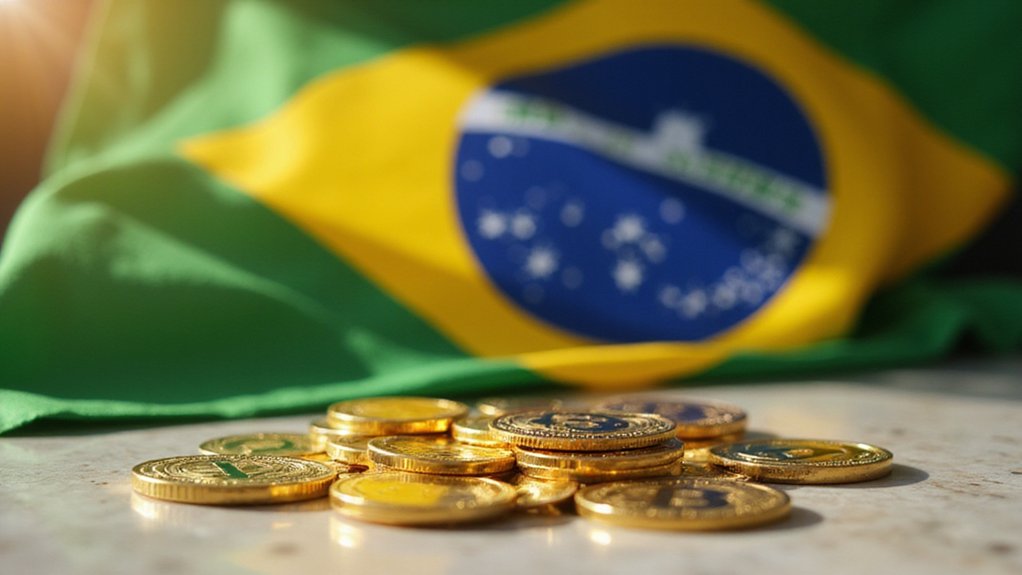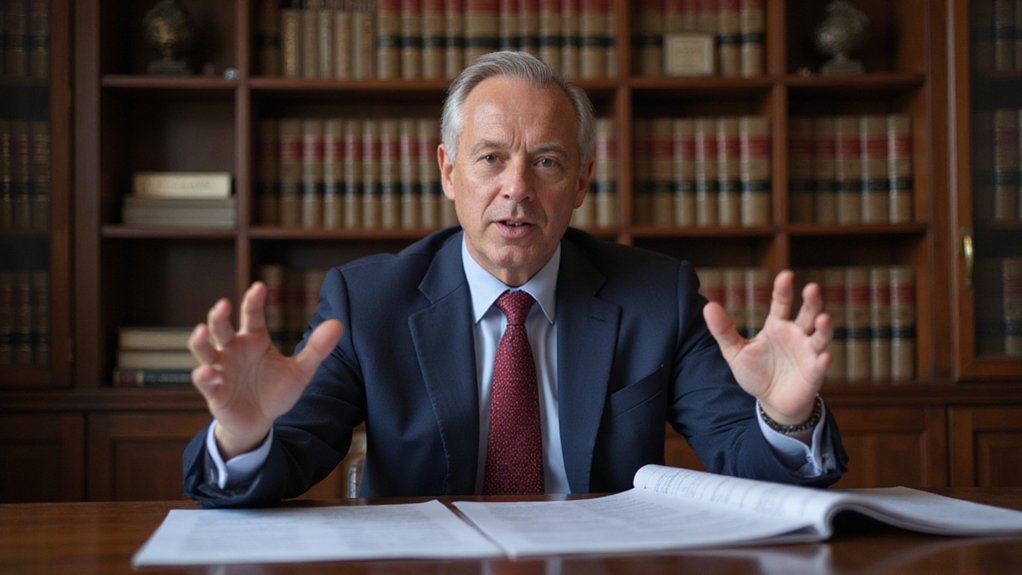Eight of South Korea’s largest banks have abandoned their traditional crypto skepticism to forge an unprecedented consortium aimed at launching a won-pegged stablecoin by late 2025—a development that would have seemed as likely as kimchi at a Fed meeting just a few years ago. The coalition includes financial heavyweights KB Kookmin, Shinhan, Woori, and Nonghyup, alongside industrial specialists IBK and Suhyup, plus international players Citibank Korea and SC First Bank/K Bank.
Eight major South Korean banks are ditching crypto skepticism to launch a won-pegged stablecoin by late 2025.
This isn’t merely another digital asset experiment destined for regulatory purgatory. The consortium operates independently from South Korea’s central bank digital currency efforts, suggesting these institutions prefer charting their own course rather than waiting for bureaucratic consensus. Their strategic calculus appears sound: establish Korea as a competitive force against the overwhelming dominance of dollar-pegged stablecoins that currently monopolize digital finance infrastructure.
The regulatory landscape has shifted dramatically to accommodate this ambitious pivot. The Virtual Asset User Protection Act, enforced since July 2024, provides clearer compliance frameworks, while the proposed Digital Asset Basic Act promises further legitimization of stablecoin issuance.
Banks are preparing for rigorous anti-money laundering requirements and transaction transparency standards—precisely the kind of regulatory burden that would have previously sent traditional institutions running for cover. Unlike the U.S. approach of regulation by enforcement, South Korea’s structured legislative framework aims to provide clearer rules from the outset.
Beyond stablecoins, these banks are embracing broader crypto expansion strategies. KB Kookmin, Shinhan, and Hana Bank are actively pursuing partnerships with domestic and international crypto exchanges, exploring digital asset custody services, and piloting blockchain-powered platforms. This represents a fundamental strategic realignment from cautious observation to proactive market participation. The timing aligns with plans to allow corporate entities to open crypto trading accounts set for 2025.
The consortium’s formation reflects broader Asian trends emphasizing centralized oversight to build institutional trust in digital assets—a marked contrast to the Wild West mentality that previously characterized crypto markets.
Banking sector competition with existing crypto players should theoretically enhance service offerings, though whether traditional institutions can match the innovation velocity of native crypto companies remains questionable.
Market observers anticipate this institutional backing will accelerate mainstream cryptocurrency adoption throughout South Korea. The banks’ collective credibility provides legitimacy that pure-play crypto companies struggle to achieve, potentially catalyzing web3 development and expanding Korean entities’ participation in global digital finance.
Whether this calculated embrace of crypto represents genuine conviction or merely competitive necessity will become apparent as their platforms launch.








